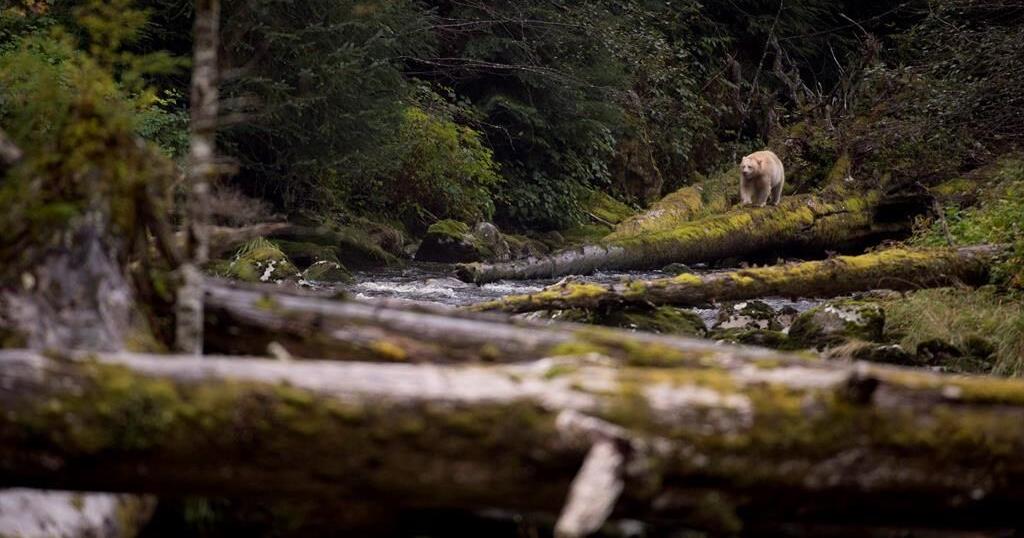VANCOUVER – The federal government has announced a new financing initiative for 17 First Nations in British Columbia to expand protection for marine ecosystems off the coast of the Great Bear Rainforest.
Prime Minister Justin Trudeau told a news conference announcing the so-called Great Bear Sea Project Finance for Permanence initiative that it will add about 14,000 square kilometres of newly protected areas.
He said it will also support sustainable development for the waters off the rainforest on B.C.’s central and northern coast.
“This initiative demonstrates what we’ve long known: reconciliation, nature protection and economic growth go hand-in-hand,” the prime minister told the news conference in Vancouver.
The federal government is committing $200 million, B.C. is contributing $60 million, while $75 million is coming from philanthropic investors, for a total of $335 million to create an ongoing endowment fund.
The new financing initiative follows a model set out by the Great Bear Rainforest agreement, which has protected large swaths of old-growth forests while supporting job creation and economic diversification for communities along the coast.
A statement from Coast Funds, Coastal First Nations and the Nanwakolas Council says the Great Bear Sea, also known as the Northern Shelf Bioregion, extends from the north coast of Vancouver Island to Canada’s boundary with Alaska.
It is home to various habitats and ecosystems, including open ocean, estuaries, dense kelp forests, expansive coral and sponge beds and deep fjords.
The groups describe the area as one of the richest and most productive cold-water marine ecoregions on Earth, home to marine life including herring, salmon, seabirds, whales and kelp forests. It’s also a source of food, culture and livelihood for Indigenous Peoples and “all who call the coast home,” the statement says.
Dallas Smith, president of Nanwakolas Council, said part of the money will fund marine research, year-round stewardship officers and creating more sustainable economic opportunities for the First Nations communities.
“We’re looking at different ecotourism to sort of supplement the terrestrial ecotourism that we’ve done,” he said in an interview. “We’re looking at botanicals, we’re looking at marine harvest opportunities and seafood harvesting opportunities.”
He said the historic agreement follows about two decades of discussions with three different prime ministers and five premiers.
George Heyman, B.C.’s environment minister, said collaboration with First Nations communities is “the only way” the province can meet its goal of protecting 30 per cent of British Columbia’s lands and waters by 2030.
“It’s a major milestone (after) 13 years of work for the B.C. government (and) a couple of decades of work of the First Nations, who have this vision and were determined to achieve it,” he said.
“We will create thousands of new jobs — permanent jobs that will advance sustainable fisheries, will create economic opportunities throughout the region, as well as supporting Indigenous guardianship to protect and conserve the region.”
Chief Marilyn Slett from the Heiltsuk Nation on B.C.’s central coast said the funding will support First Nations’ conservation and community development plans.
Slett, who also serves as president of Coastal First Nations, said the upfront capital announced at the news conference is expected to return more than $750 million over the next two decades.
“This is huge and exciting for the coast. These funds will support collaborative management of new marine protected areas, and will sustain jobs and careers in marine stewardship, conservation, research and monitoring — our essential work to restore and protect fish, wildlife and a healthy sea we all depend on.”
This report by The Canadian Press was first published June 25, 2024.
